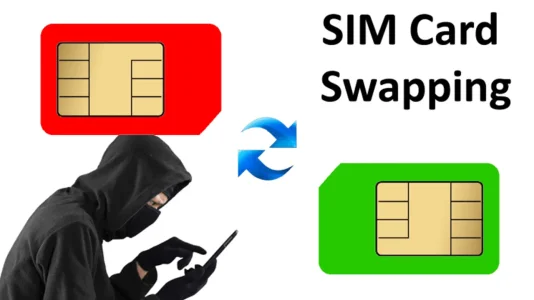SIM Swap Scams in South Africa - Don't Be a Victim!

What is a SIM Swap Scam?
A SIM swap scam occurs when fraudsters manipulate network providers or victims to transfer phone numbers to a new SIM card they control. This gives them access to the victim's text messages, calls, and critically, their banking verification codes (OTPs).
Common SIM Swap Tactics
1. The "Fraud Department" Call
- Scammers call pretending to be from your network providers' fraud department
- They claim someone is attempting an unauthorized SIM swap at a branch
- They may know your name from caller ID apps like TrueCaller
- They request an OTP "to verify your identity and stop the fraud"
- Once they have the OTP, they can perform an actual SIM swap or make unauthorized purchases.
2. Phishing Email / SMS Method
- Victims receive a fake bank email / SMS with links to fraudulent login pages
- When victims enter their details, scammers capture their banking credentials
- Scammers then visit the service provider, claim a lost SIM, and request a new one
- With both banking details and control of the phone number, they can drain accounts
3. Physical SIM Swap
- Scammers approach victims offering promotions or giveaways
- They ask to handle the victim's phone to "load free data"
- While holding the device, they swap out the SIM card
- They trick victims into taking "selfies" that actually activate banking apps
- They collect banking information through social engineering
Warning Signs of a SIM Swap
- Sudden loss of cellular service
- Unable to make/receive calls or messages
- Banking transaction notifications stop
- Receipt of "Pending SIM swap" notifications
Preventing Sim Swaps
Security Practices
- Never share PINs, passwords, or OTPs
- Use unique, strong passwords for all accounts
- Regularly change passwords
- Don't store banking credentials on your phone
- Set short auto-lock timers on devices
- Password-protect all devices
When Interacting with Others
- Never hand your phone to strangers
- Be wary of promotion offers requiring selfies
- Don't click links in unsolicited emails or texts
- Verify urgent requests through official channels
- Never share account numbers or Remote PINs
If You Suspect a SIM Swap
- Immediately contact your mobile carrier through their official number
- Have them deactivate your number
- Contact your bank immediately
- Be especially vigilant during periods of network instability (like load-shedding)
Remember: Your bank and service provider will never call to request your PINs, passwords, or OTPs. Always treat urgent requests for personal information with extreme caution.
Useful Links
Beware of the latest SIM scams including Twin SIM and others
SIM scams include fraudsters doing a SIM swap with your network provider, this will give them full access to any messages, and approve SMSs sent to your phone.

Don’t be a victim of a SIM swap
Here’s what you can do to prevent being taken in by scammers.
now.vodacom.co.za
